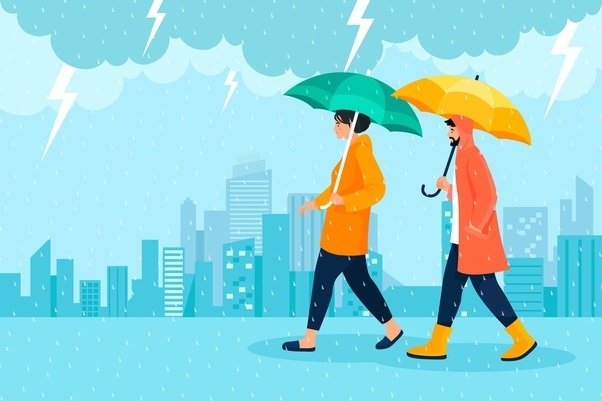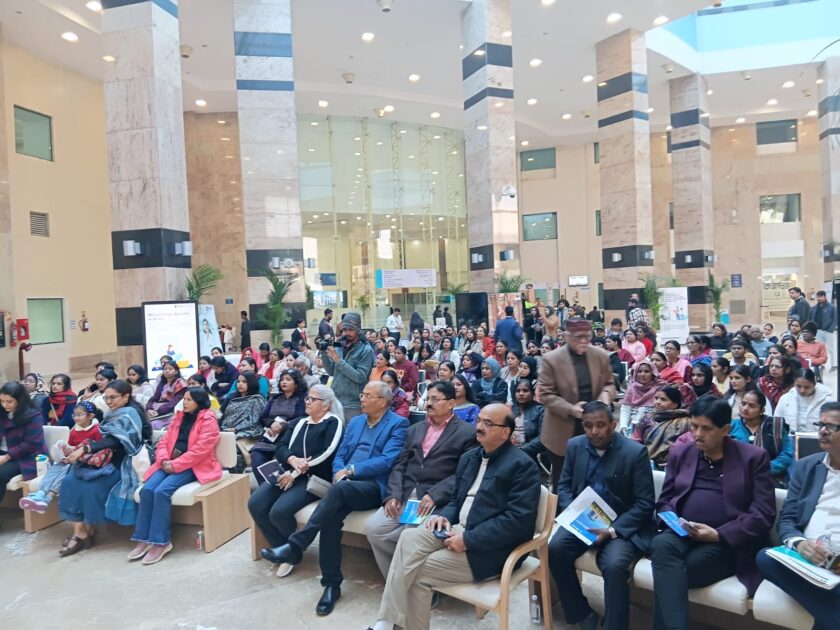Lucknow: During the monsoon season, various health problems can arise due to increased humidity, waterlogging, and a proliferation of disease-causing organisms. Here are some common health issues faced during this time:

- Waterborne Diseases:
- Cholera: Caused by contaminated water, leading to severe diarrhea and dehydration.
- Typhoid Fever: Also spread through contaminated food and water, causing high fever, weakness, stomach pains, headache, and loss of appetite.
- Hepatitis A: Spread through contaminated food and water, affecting the liver and causing jaundice.
- Vector-borne Diseases:
- Malaria: Spread by mosquitoes breeding in stagnant water, causing fever, chills, and flu-like symptoms.
- Dengue Fever: Also spread by mosquitoes, leading to high fever, severe headache, pain behind the eyes, joint and muscle pain, rash, and mild bleeding.
- Chikungunya: Another mosquito-borne disease causing fever and severe joint pain.
- Respiratory Infections:
- Common Cold and Flu: The humid weather can make people more susceptible to viral infections, leading to symptoms like cough, cold, fever, and body aches.
- Asthma: Increased humidity and dampness can trigger asthma attacks and other respiratory issues.
- Skin Infections:
- Fungal Infections: The humid environment can lead to fungal infections like athlete’s foot, ringworm, and yeast infections.
- Bacterial Infections: Increased moisture can also cause bacterial skin infections, such as cellulitis and impetigo.
- Gastrointestinal Problems:
- Food Poisoning: Consuming contaminated food can lead to symptoms like nausea, vomiting, diarrhea, and stomach cramps.
- Gastroenteritis: Inflammation of the stomach and intestines, usually resulting in diarrhea, vomiting, and abdominal pain.
- Leptospirosis:
- A bacterial infection spread through water contaminated with the urine of infected animals, leading to symptoms like high fever, headache, chills, muscle aches, vomiting, jaundice, and sometimes rash.
- Jaundice:
- Can be caused by contaminated water and food, leading to yellowing of the skin and eyes, fatigue, and abdominal pain.
Prevention Tips
- Drink Safe Water: Use filtered or boiled water for drinking and cooking.
- Maintain Hygiene: Wash hands frequently, especially before eating and after using the restroom.
- Avoid Stagnant Water: Prevent mosquito breeding by not allowing water to collect in and around your home.
- Use Insect Repellents: Apply mosquito repellent creams and use mosquito nets while sleeping.
- Eat Fresh Food: Avoid eating street food and ensure that food is cooked properly.
- Wear Protective Clothing: Wear long-sleeved clothes and pants to reduce exposure to mosquito bites.
- Keep Surroundings Clean: Ensure your environment is clean and free from garbage and debris.
---------------------------------------------------------------------------------------------------














